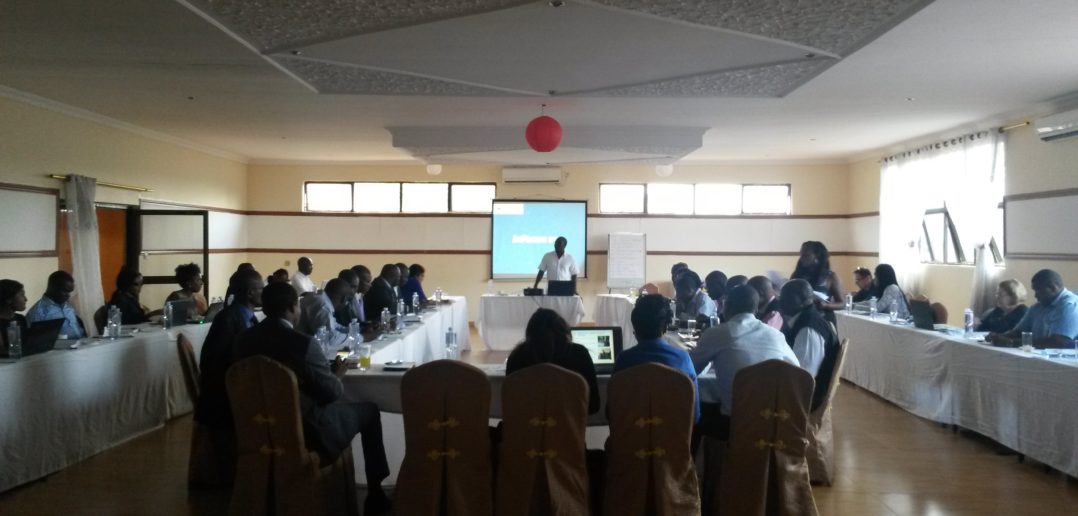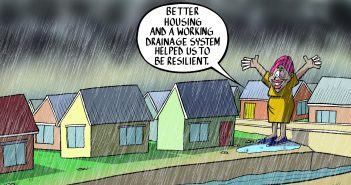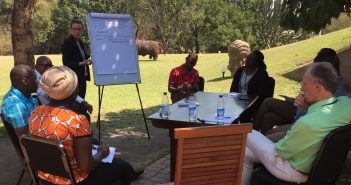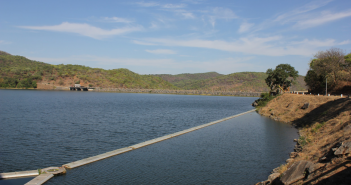Blog by: Brenda Mwalukanga (FRACTAL embedded researcher in Lusaka)
I must admit it has taken me longer to write another blog than I thought it would. To bring you up to speed on what has happened since my joining the Fractal team, we have successfully held a learning lab that was attended by 15 organisations working in the water and energy sectors. Over 45 participants were present with the local authority, university of Cape Town and Lusaka city council, water resources management agencies, Red Cross, Interim climate change secretariat and ZESCO to name a few. Participants were able to talk about climate change and how it affects Lusaka city, distilling the burning issues to 4 main focus areas, low sanitation levels, erratic and low water supply, flooding and unregulated ground water abstraction.
Fast forward to the last week of January, we held the first city dialogue on Lusaka water resources and climate change. These city dialogues are meant to be smaller engagements that focus on a particular aspect of the burning issue that is identified during the lab process. During this first dialogue, key players in the water sector were brought together to discuss how their work might be affected by climate variability and change, and how it might contribute to effective responses. Presentations were given by meteorological department, former department of water affairs now department of water resources development, Lusaka water security initiative and peoples process on housing and poverty in Zambia.
As a result of this dialogue, participants from organisations working in the water sector in Lusaka and those living in the city who are affected by climate change (mostly the urban poor represented by People’s Process on Housing and Poverty) were able to understand each other’s perspectives and mandates, discuss possible linkages and create contacts.
I believe FRACTAL is facilitating the establishment of a useful network of technocrats and practitioners; stakeholders who would rarely meet under normal circumstances. At the first dialogue event, stakeholders from both groups expressed the constraints regarding access to information. These stakeholders also discussed common issues and posed questions to each other on future plans, relevant Lusaka water resources and climate change.
I am excited because FRACTAL is moving forward and providing focused discussions related to the burning issues of Lusaka. A fact sheet on water resources and climate change in Lusaka will be developed as an output of this first dialogue. This fact sheet will be developed by a team that constitutes dialogue participants, which will facilitate knowledge production in a transdisciplinary manner. I must say the participants were a passionate group; eager to learn what other organisations are doing, and always on the lookout for synergies and potential partners.
Opportunities for collaboration in cross-cutting issues such as mapping were identified. My hope is that before the end of the year (2017), we see some fruitful collaboration from the stakeholders participating in the learning lab and city dialogues. More dialogues are currently being planned to discuss various components of the burning issues with key stakeholders.
We are looking forward to hosting more dialogues on climate change and other entry points that could help make the city of Lusaka resilient in the future. Look out for my blog (soon to come) on the training of councillors that was conducted the next day. I’ve enjoyed witnessing a lot of passion in the technical experts and civic representative of Lusaka.




